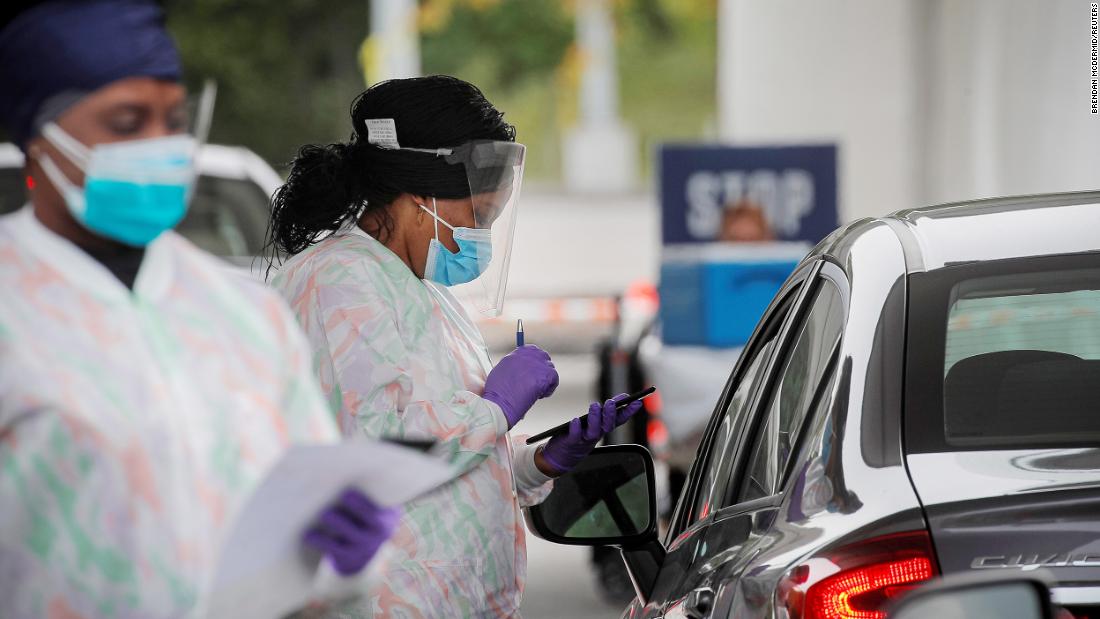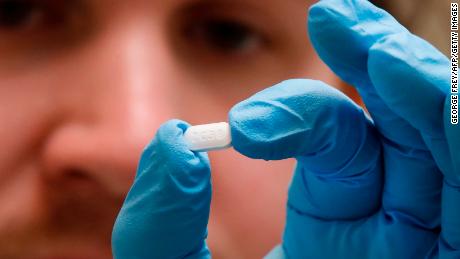Leaders in several states warn residents to be on guard as worrying Covid-19 trends emerge
“An infection today can become a cluster tomorrow,” Cuomo said.
“We are still knee-deep in the first wave of this,” Fauci said in a Facebook and Twitter livestream.
In Kentucky, Gov. Andy Beshear on Wednesday urged the state to halt a recent “escalation” of cases after reporting more than 1,000 new infections for the second day in a row.
“Today’s daily report is too high,” the governor said. “I need your help. It’s up to us and we’ve got to get this done.”
In Wisconsin, cases and hospitalizations are soaring. The state on Wednesday reported its highest-ever number of Covid-19 hospitalizations — more than double the numbers seen in late August, when they were in the high 200s, Covid Tracking Project data show.
Wisconsin’s seven-day average of new daily official cases hit a high Wednesday — 2,334, well above the averages in the 600s and 700s seen in late August.
And in Illinois, the governor is tightening restrictions in one part of the state after an increase in positivity rates.
As of early Thursday, at least 27 states were reporting higher seven-day averages of new daily cases than a week ago, according to data from Johns Hopkins University. Nationwide, more than 7.2 million people have been infected and more than 206,000 have died.
When a vaccine could be available to US population
On Wednesday, Moderna CEO Stéphane Bancel said if its Covid-19 vaccine is proven safe and effective, it could be available to the general population by late March or early April.
“I think a late Q1, early Q2 approval is a reasonable timeline, based on what we know from our vaccine,” Bancel said at a conference hosted by the Financial Times.
But there are several steps that will have to come before that.
If the safety and efficacy data checks out, Bancel says he expects Moderna will be able to file a Biologics License Application (BLA) with the US Food and Drug Administration by late January or early February. That application asks the FDA to consider fully licensing a drug, while an emergency use authorization (EUA) expedites a drug candidate for use on an emergency basis.
Moderna could file for an EUA as early as November 25 for people who are deemed high priority, including health care workers and the elderly, Bancel said at a conference hosted by the Financial Times.
“I think if we can get 75 to 80% of the population vaccinated, I think that would be a really good accomplishment,” Fauci said recently.
Mississippi lifts mask mandate
Despite officials continuing to advocate for the use of masks, Mississippi Gov. Tate Reeves announced Wednesday he will not extend the state’s mask mandate, saying the state’s numbers for average new Covid-19 cases have declined.
“It has been a great few weeks for Covid-19 numbers,” the governor said. “We’ve cut our average number of new cases in half, we’ve cut hospitalizations by two thirds of what they once were.”
Mississippi has reported more than 98,000 infections since the start of the pandemic. According to data from Johns Hopkins, Mississippi is one of 14 states that have been tracking relatively steady in the number of new cases compared to the previous week.
Wyoming, which last week set a single-day record for new Covid-19 cases, also loosened rules around restaurants. Nevada loosened restrictions on public gatherings, while in California, several counties were given the green light to move into less restrictive tiers of the state’s reopening plan.
Despite doing away with the mask mandate in Mississippi, the governor urged residents to continue wearing face coverings, saying it’s the “smart, prudent and wise thing to do.”
CNN’s Sheena Jones, Kristina Sgueglia, Jason Hanna, Betsy Klein, Lauren Mascarenhas, Claudia Dominguez and Kay Jones contributed to this report.
![]()










